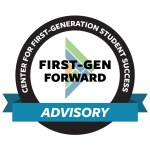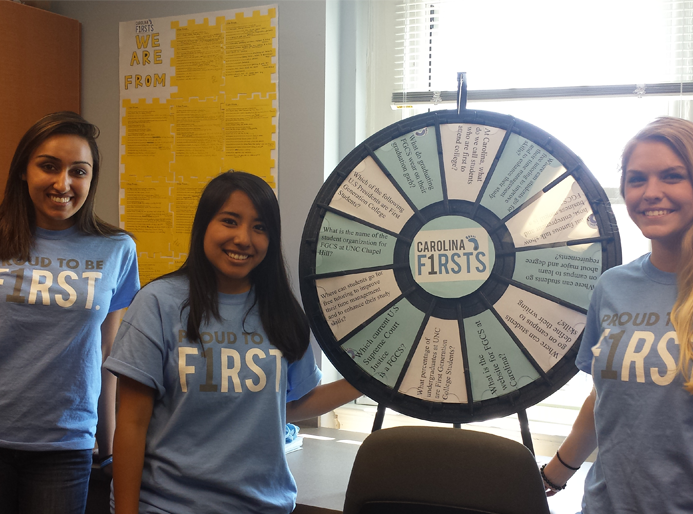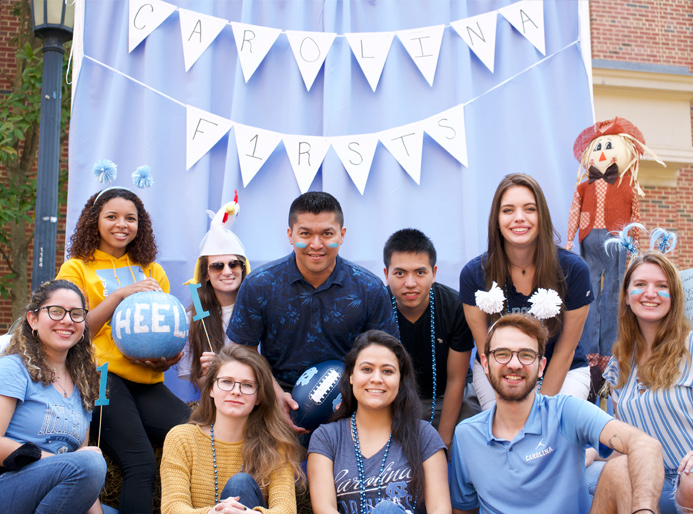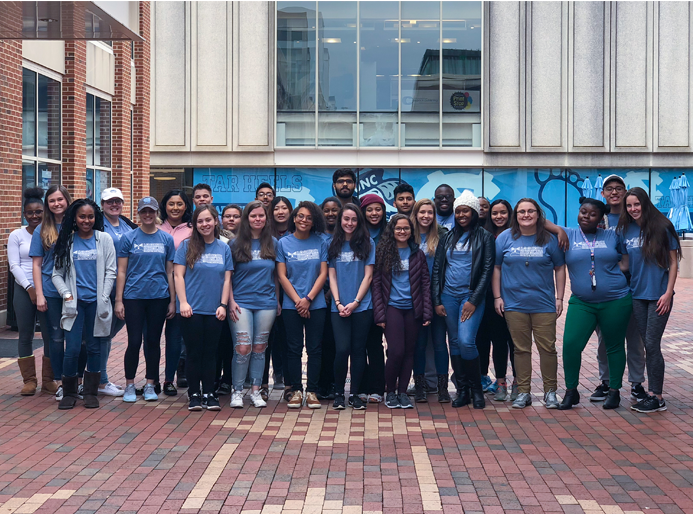Carolina Firsts
At UNC-Chapel Hill, we proudly call first-generation college students “Carolina Firsts.” Making up approximately 20% of our undergraduate population, Carolina Firsts are integral to our campus culture, contributing greatly to our diversity and intellectual life.

We are First Forward!
NASPA – the national organization for student affairs professionals in higher education – recognizes UNC-Chapel Hill as a national leader for first-generation college student success innovation.



